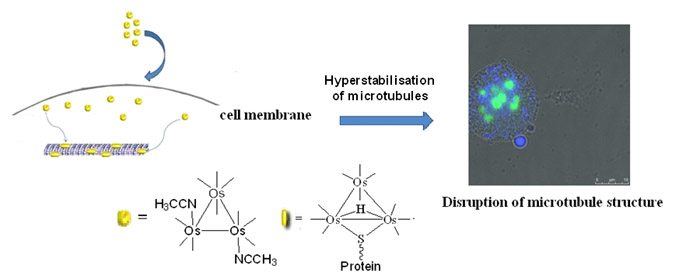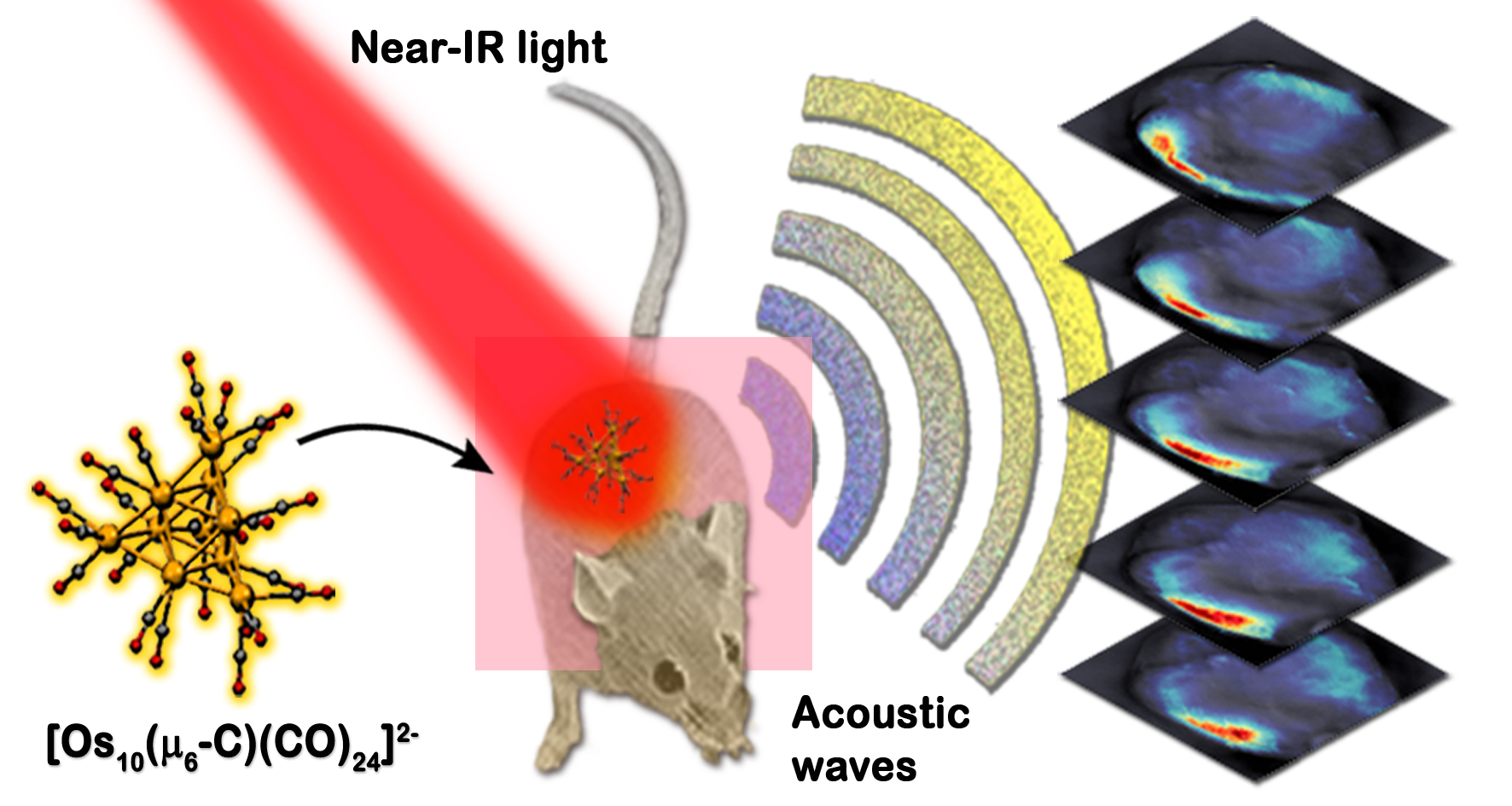Bioorganometallic Chemistry
At the confluence between organometallic chemistry and the biomedical sciences, our activity in this area are on two main fronts:Therapeutics
Our earliest work on this front were a collaborative effort with a group in Paris on metallocenyl derivatives of Tamoxifen and our own discovery that osmium carbonyl clusters can exhibit cytotoxicity. For example, we discovered that some metal carbonyl clusters hyperstabilise microtubules - a similar mode of action to Taxol.

Bioimaging
Starting from our earliest work on the use of metal carbonyl clusters as spectroscopic tags for cellular imaging in the mid-IR, we have since progressed on to their development into Raman-based tags via conjugation onto gold nanoparticles. This has the advantage of greatly improved spatial resolution for intracellular imaging. The idea has also been exploited in the form of bioassays using metal carbonyl cluster as probes. More recently, we have shown that higher nuclearity carbonyl clusters (HNCCs), which can have absorption in the NIR, can be good photoacoustic contrast agents for whole body imaging.
